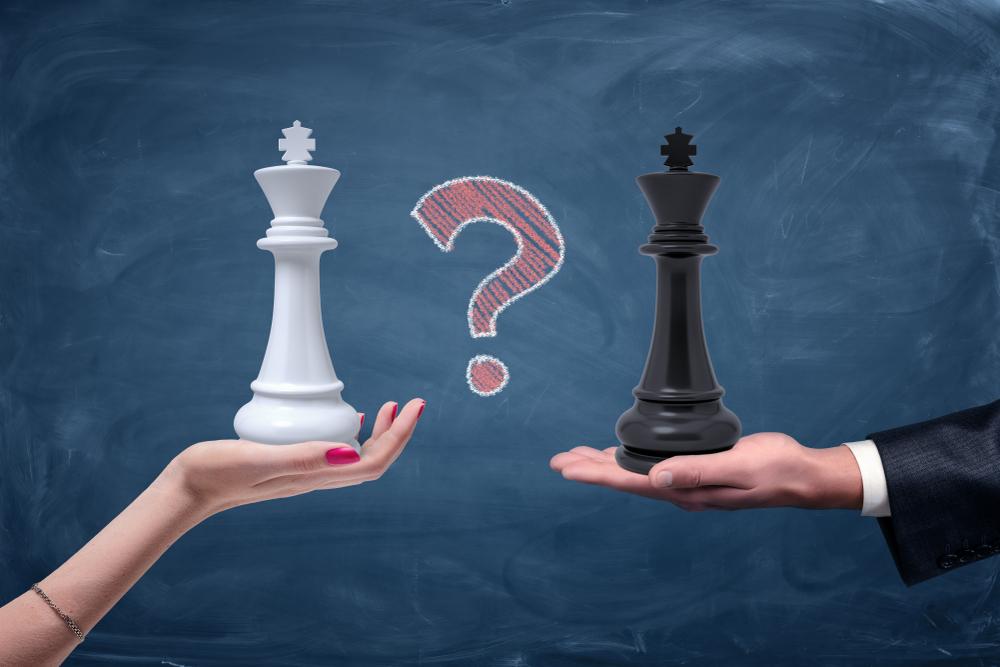
Is Chess A Sport, Science Or Art?
When we learn the rules of chess and start playing, we never ask ourselves the question in the title of the article.
We just enjoy the process of playing, that's all! But almost any person who has played chess for a long time is going to ask: "What is chess?"
The answer depends on the time this question is asked. For example, after last year's world championship tiebreak, Fabiano Caruana might have answered something like: "What is chess? Magnus don't hurt me, don't hurt me no more."

Jokes aside, I think it was great Mikhail Botvinnik who defined chess as a mix of sport, art and science.
In my opinion he was absolutely correct! Even though many people would argue that for them chess is just one element of Botvinnik's triad, in reality we experience all of them through our chess lives.
For beginners, chess is all about winning, since they cannot fully appreciate the beauty of the game yet. As a chess player gains some knowledge and experience, and he starts reading books and works with databases and engines, chess becomes science. For me, as a retired player, chess is all about art.
Therefore, it is not a big surprise that people can see the same game in absolutely different ways. Take for example a recent game from the World Cup.
I have a student who followed the World Cup quite closely. He knew most of the results but couldn't recall any single game. For him, this game would be mostly about Ian Nepomniachtchi winning his match. Indeed, it is very impressive how the Russian grandmaster solved the problem of playing in the situation where a draw is as good as a win. Having won the previous game, he could have just played it safe, but instead he was aiming at the opponent's king and decided the game by a beautiful combination.
For those people who play the King's Indian Defense and are looking for a weapon against the ultra-solid (or should I say boring) London System, this game is a good start for their opening research.
For me personally, every game (and especially a good game) is a piece of art. Just like books and movies, chess games bring back our experiences and memories.
Remember:
Memories light the corners of my mind
Misty water-colored memories of the way we were.
Yes, chess games are all about the way we are and the way we were. Take this particular game by Nepomniachtchi. The game had just started and my memories immediately brought me over 30 years back to an unforgettable tournament. Vassily Ivanchuk is playing next to me and he is on his way to creating a strategic masterpiece. First, he outplayed his opponent in the opening.
I noticed that Ivanchuk slightly deviated from the classical game he definitely knew. You see, I grew up with Ivanchuk; we played in the same tournaments, had the same training camps and analyzed together a lot. So, trust me, with his fantastic memory, Ivanchuk knew all the classical games!
Can you find the following two moves by Korchnoi?
When I saw this game the first time, it made a very strong impression on me. Black correctly avoids the trades even if it means that he must move his knights back. Pretty soon, White's pieces are going to get pushed back and start experiencing the lack of space. That's why Korchnoi avoided the trades!
Here is how the game concluded:
Ivanchuk captured the b3 pawn and punched the clock so hard that it fell off the table. To his credit, Lars Bo Hansen was very calm despite the severe time trouble, so he just reached for the clock and returned it to the table. Once Ivanchuk saw the clock, which was still ticking, he immediately grabbed another pawn by Bxa4!
At this point, chill filled the room. Dozens of people who circled the board couldn't understand what was going on. Yes, Baron Munchausen managed to kill 50 ducks with one shot, but even he couldn't possibly capture two pawns in one move! Lars Bo Hansen wasn't so calm anymore: his queenside just disappeared right in front of his eyes.
The tournament director looked at the board, helplessly refusing to believe that one of the strongest players in the world could play two moves in the row. After a couple of seconds of complete silence, the room was shaken by hearty laughter. The tournament director got out of his stupor and stopped the game. When order was restored, I left the room. White's position was completely hopeless and there was nothing to watch there anymore.
About 30 minutes later I returned to the room to check the results of the round, and saw the final position of Ivanchuk's game on the demo board.
The result of the game was posted as a draw, so I pointed the mistake out to the person in charge of the demo boards. He assured me that the game was indeed drawn.
"But White can resign there!" I thought. I still couldn't comprehend what was going on.
"I don't know," responded the demo board guy, "Ivanchuk just offered a draw". Back in the hotel I saw Ivanchuk and asked him why he offered a draw in a completely winning position. He just answered, "I don't need wins like that," and ran away.
As you can see, different people could see different things while watching the Tomashevsky-Nepomniachtchi game. The result-oriented people would just register the fact that Nepomniachtchi knocked out his opponent and qualified for the next round. The research people would dig their database, find Korchnoi's and Ivanchuk's games, and have a good weapon against the London System. For me this game was a time machine that brought me back to the old days when the grass was definitely greener!
What is chess for you? Let us know in the comments.



